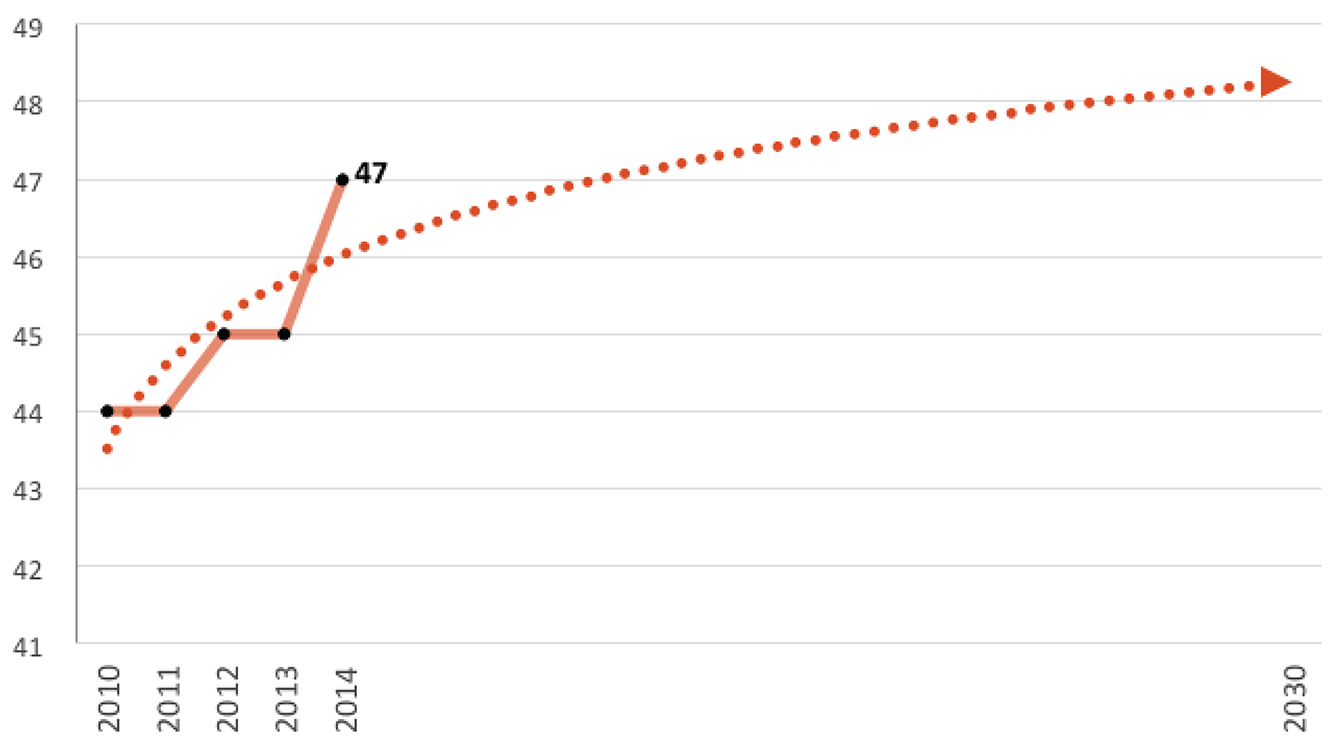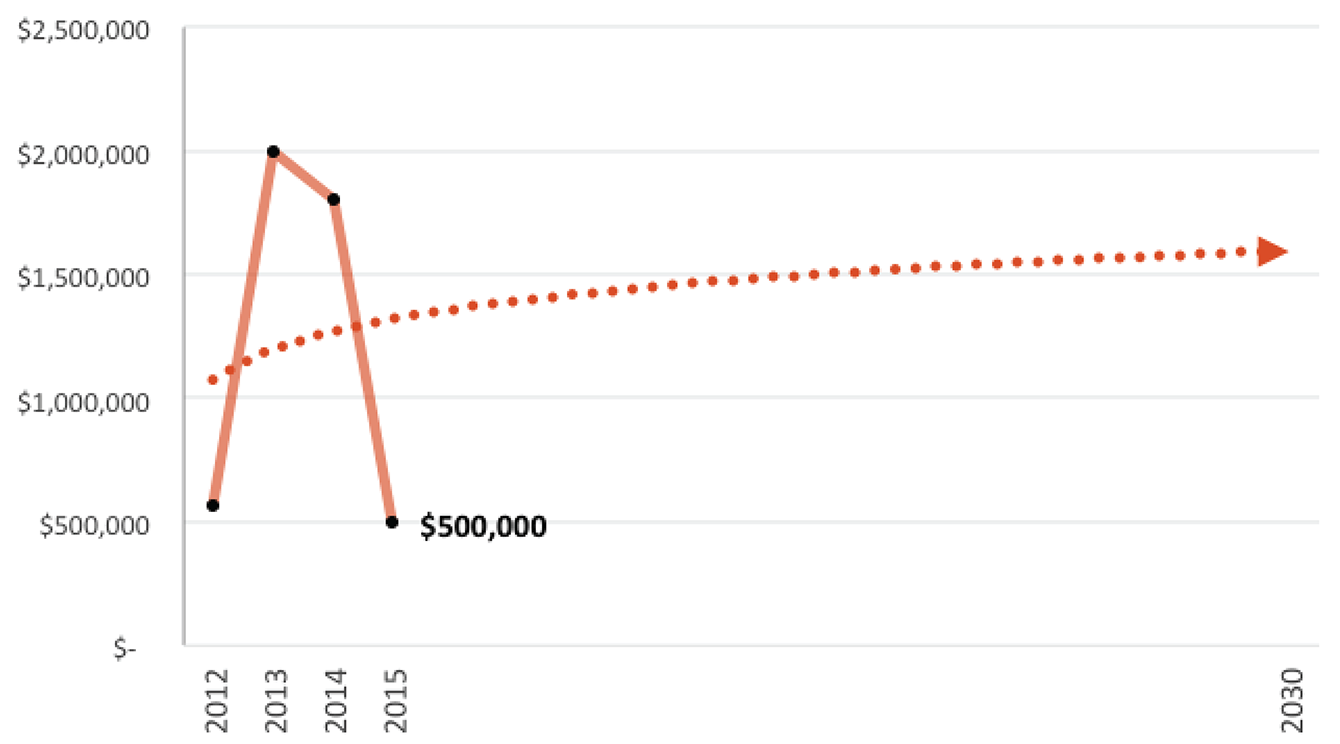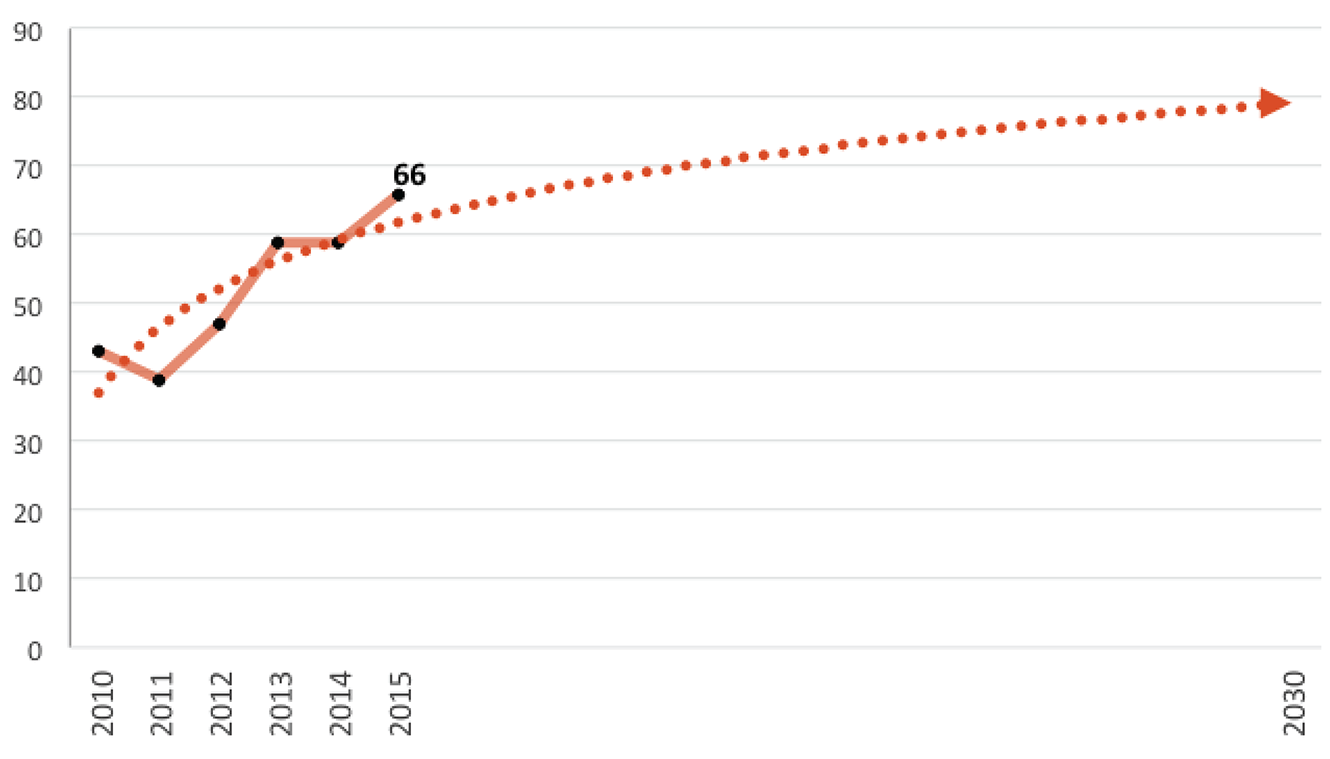For the United Nations Sustainable Cities Initiative, Goal #9 is industry, innovation and infrastructure.
For Baltimore, the indicators identified by the University of Baltimore to date for this goal are as follows:
Annual Hours of Delay per Auto Commuter
A measurement of the number of hours of travel delay an average car commuter experiences due to congestion per year. The more hours of delay the greater the waste of time and energy resources.
Total Value of City Innovation Fund Awards
A representation of the total value of all Innovation Fund grants awarded each fiscal year by the City of Baltimore since the program's inception. The greater the fund amounts, the more the city is able to provide seed money for one-time investments that will lead to improved results, increased revenues and/or reduced ongoing operating costs for city services.
Number of Utility Patent Grants
A measurement of patents issued for the invention of a new and useful process, machine, manufacture, or composition of matter, or a new and useful improvement thereof. The greater the number of patents, the greater the likelihood of innovation.
Tell us what you think about these indicators! Take the survey for Goal #9.
Goal 9 Global Targets
9.1 Develop quality, reliable sustainable and resilient infrastructure including regional and trans-border infrastructure, to support economic development and human well-being, with a focus on affordable and equitable access for all.
9.2 Promote inclusive and sustainable industrialization and, by 2030, significantly raise industry’s share of employment and gross domestic product, in line with national circumstances, and double its share in least developed countries.
9.3 Increase the access of small-scale industrial and other enterprises, in particular in developing countries, to financial services, including affordable credit, and their integration into value chains and markets.
9.4 By 2030, upgrade infrastructure and retrofit industries to make them sustainable, with increased resource-use efficiency and greater adoption of clean and environmentally sound technologies and industrial processes, with all countries taking action in accordance with their respective capabilities.
9.5 Enhance scientific research, upgrade the technological capabilities of industrial sectors in all countries, in particular developing countries, including, by 2030, encouraging innovation and substantially increasing the number of research and development workers per 1 million people and public and private research and development spending.
9.6 Significantly increase access to information and communications technology and strive to provide universal and affordable access to the Internet in least developed countries by 2020.
Learn more about this goal via the United Nations.




